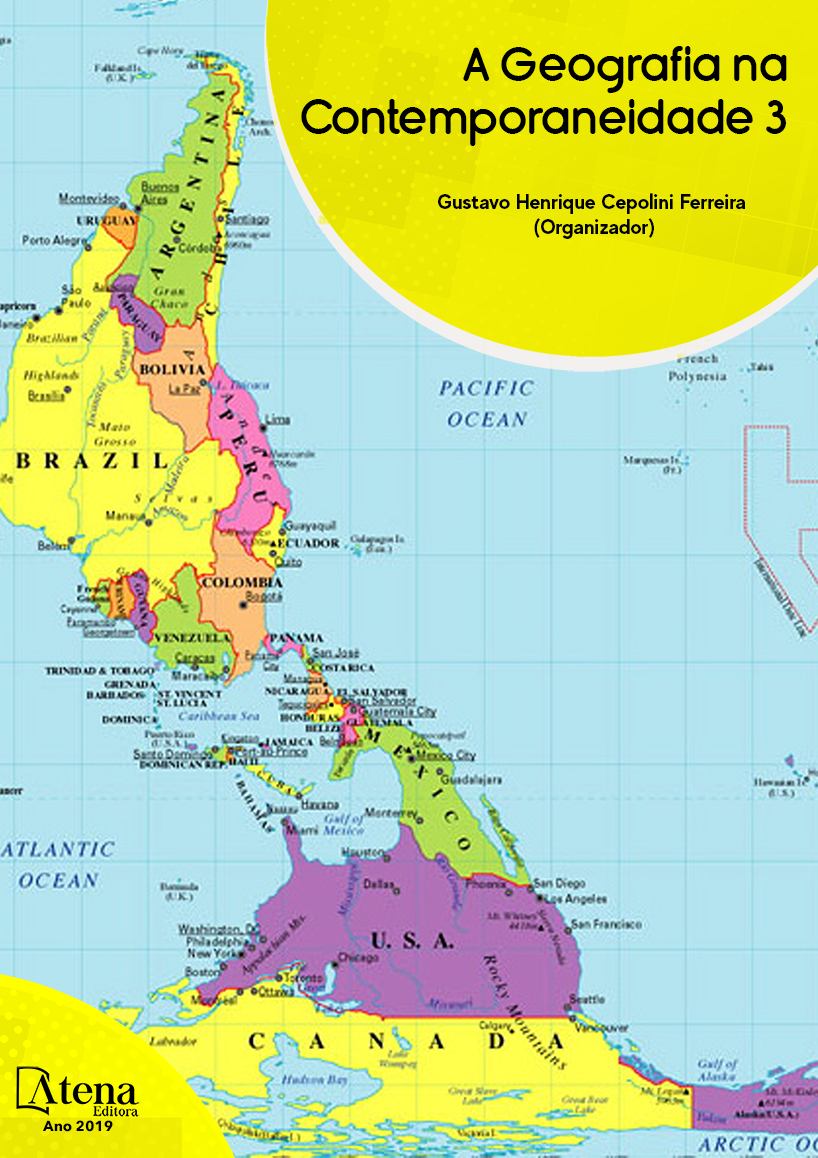
QUEM TE DARÁ A TERRA SE NÃO FOREM TUAS MÃOS: PROJETO DE ASSENTAMENTO CHICO MENDES I (PRESIDENTE MÉDICI-RONDÔNIA)
O enfrentamento de conquista
pela terra, especialmente para o campesinato,
representa autonomia, interrompendo uma
história de exclusão social. Por isso, pensar
no campesinato em áreas de assentamento
rural é perceber a sua interação com as partes
antes de olhar o todo, é entender como maneja
a terra, utiliza a água, como planta a semente,
sua organização social com a comunidade, e
ainda com o mercado, ao ponto de compreender
sustentavelmente este meio rural. Portanto,
aprofundar o entendimento e as discussões
acerca da produção do espaço efetivado a partir
do processo de implantação de assentamentos
de reforma agrária no Estado de Rondônia,
e mais especificamente em Presidente
Médici, no Projeto de Assentamento Chico
Mendes I, tornando-se socialmente relevante,
principalmente para os camponeses envolvidos
nos espaços investigados, à medida que o
conhecimento construído permite engendrar
ações de fortalecimento do movimento da
consolidação da conquista e permanência
da luta. Por isso, para melhor compreender
estas relações sociais no Assentamento
Chico Mendes I é crucial compreender o
processo histórico de luta e enfrentamentos
dos assentados, assim como identificar o papel
do camponeses como protagonista daquela
realidade, entendendo como suas respectivas
atuações resultam na construção de um rural
com problemas e demandas, todavia, este atua
para que consiga desenvolver suas atividades
para a geração de renda e auto sustento, seja
aprendendo por meio dos conhecimentos
geracionais, seja com as dificuldades do
cotidiano em produzir no campo, que por muitas vezes está baseado numa assistência
deficiente e ausência de acesso às políticas públicas.
QUEM TE DARÁ A TERRA SE NÃO FOREM TUAS MÃOS: PROJETO DE ASSENTAMENTO CHICO MENDES I (PRESIDENTE MÉDICI-RONDÔNIA)
-
DOI: 10.22533/at.ed.3991903072
-
Palavras-chave: Assentamento Rural; Campesinato; Movimentos Sociais; Políticas Públicas; Reforma Agrária.
-
Keywords: Rural Settlement; Peasantry; Social Movements; Public Policy; Land Reform.
-
Abstract:
The confrontation of conquest by the land, especially for the peasantry,
represents autonomy, interrupting a history of social exclusion. Therefore, to think of
the peasantry in rural settlement areas is to perceive their interaction with the parties
before looking at the whole, is to understand how they manage the land, use water,
how to plant the seed, their social organization with the community, and with the
market, to the point of sustainably understanding this rural environment. Therefore,
to deepen the understanding and the discussions about the production of the space
effected from the process of implantation of settlements of agrarian reform in the State
of Rondônia, and more specifically in Presidente Médici, in the Project of Settlement
Chico Mendes I, becoming socially relevant , especially for the peasants involved in the
spaces investigated, as the knowledge built allows engendering actions to strengthen
the movement of consolidation of the conquest and permanence of the struggle.
Therefore, in order to better understand these social relations in the Chico Mendes I
settlement it is crucial to understand the historical process of struggle and confrontation
of the settlers, as well as to identify the role of the peasants as protagonists of that
reality, understanding how their respective actions result in the construction of a rural
with problems and demands, however, it acts so that it can develop its activities for the
generation of income and self-sustenance, be it through generational knowledge or the
daily difficulties of producing in the field, which is often based on a poor assistance and
lack of access to public policies.
-
Número de páginas: 15
- Tânia Olinda Lima
- Denes Luís Reis Pedrosa
- Rogério Nogueira de Mesquita
- Claudia Cleomar Ximenes
- Danúbia Zanotelli Soares
- TÂNIA OLINDA LIMA


